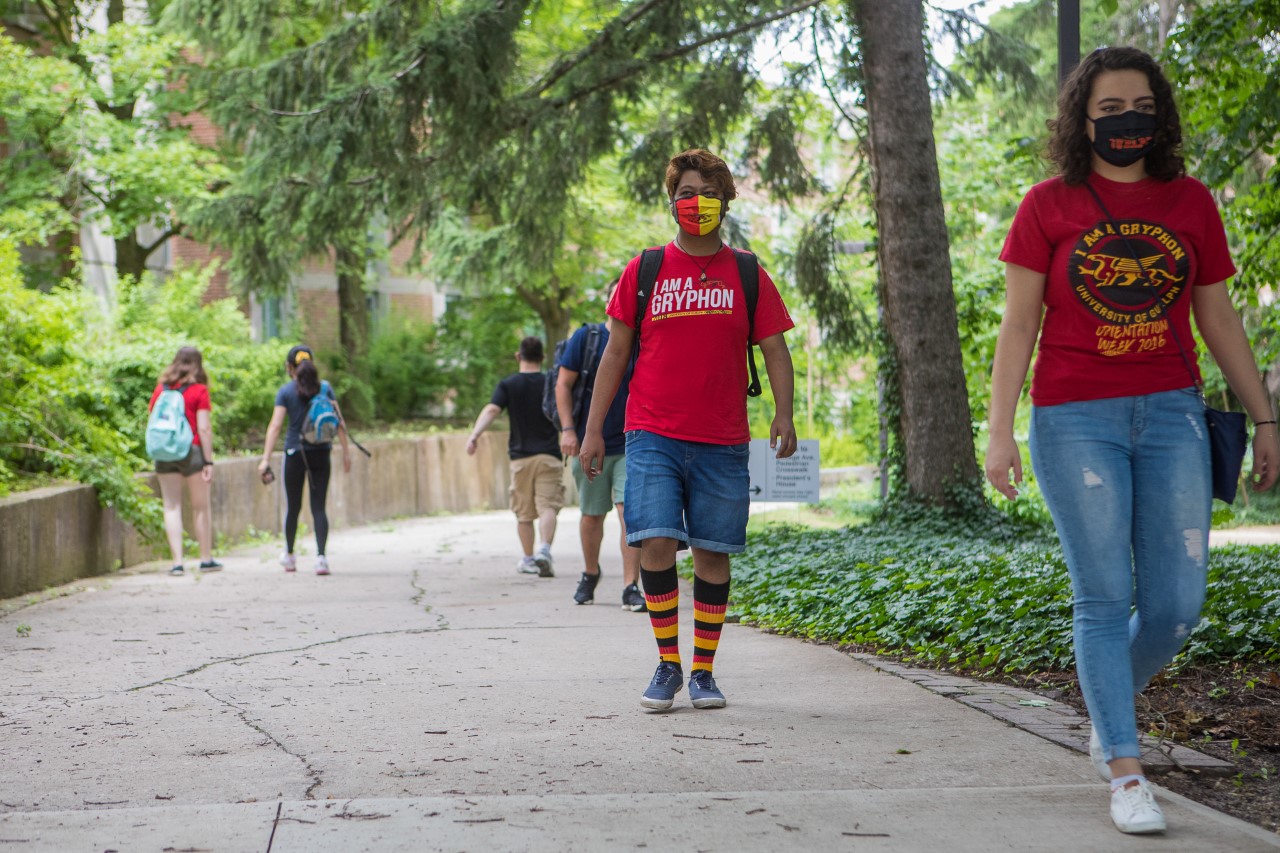 It is a fall semester like no other at the University of Guelph.
It is a fall semester like no other at the University of Guelph.
U of G welcomed nearly 30,000 new and returning students last week. But for about 95 per cent of those students, the first day of classes meant logging on to a computer and meeting their professors and classmates remotely.
Due to the ongoing COVID-19 pandemic, the majority of U of G courses, including all first-year classes, are being offered in an alternative format. This fall, most courses are either synchronous, with instructors and students connecting virtually at the same day and time, or asynchronous, with students working on their own schedules.
Like many universities across Canada, U of G made the decision to move to a remote delivery format last spring as it continued to prioritize the safety of our students, faculty and staff and the broader community.
“These new teaching and learning platforms use a variety of tools and resources to provide students with an enriched and flexible online experience,” said Gwen Chapman, provost and vice-president (academic).
“Our faculty and staff have been working diligently for months to develop innovative and engaging ways to teach and support students both inside and outside of the classroom.”
Only about 800 students are living in campus residences and in family housing to ensure physical distancing and to comply with public health protocols. Another 10,000 students are estimated to be living off campus in the Guelph area.
U of G moved its legendary O-Week and many other “welcome to campus” activities online, and is offering virtual student experiences, clubs and recreation activities, wellness services, counselling and academic advising.
With all varsity sports and sporting events cancelled provincially, no athletic competitions will take place. Some carefully structured athletic training and fitness offerings will still occur on campus following public health guidelines.
Staff who can work remotely continue to do so. Public access to campus buildings and spaces is limited to help prevent the spread of COVID-19.
Only a limited number of in-person classes and labs will take place on campus. For the people attending the Guelph campus to teach or learn, conduct critical research or provide essential services, the University has undertaken numerous efforts to help ensure health and safety and support our campus community as they comply with public health measures.
New protocols have been established to ensure physical distancing and use of screening and face coverings. About 700 hand sanitization stations have been placed around campus, and cleaning efforts have increased in high-touch areas. The University launched an educational campaign to promote awareness and understanding of protocols and best practices.
While some buildings are only open to students and faculty involved in face-to-face classes, the campus is open for students wishing to study here. Study spaces are designated in the University Centre and the library, with appropriate physical distancing and capacity limits to meet provincial guidelines.
Student services continue to be delivered, both in-person and remotely, including vital health and wellness supports. Students have access to physicians, nurses, counsellors, accessibility service advisers, sexual violence support staff, dietitians and other practitioners.
“Through it all, our No. 1 priority will continue to be health and safety,” said Carrie Chassels, vice-provost (student affairs).
The University and greater Guelph community have faced unprecedented challenges since March and worked hard to help prevent the spread of COVID-19, Chassels said. “It is understandable that at the start of the new semester, with some students choosing to return to Guelph to continue their studies, people have concerns.”
Numerous additional efforts are under way to educate and remind students of the need to remain vigilant, at home and in the community, she said.
“We are making it clear to all students that they are responsible for helping keep our community safe, whether they are living on or off campus. We are providing students with the necessary resources and supports to ensure adherence to public health protocols, practices and guidelines.”
The University is working closely with our community partners such as Wellington, Dufferin and Guelph Public Health, city bylaw officers and Guelph police to ensure students have the information they need to adhere to provincial regulations and public health measures.
Under its non-academic misconduct policy and off-campus community standards, the University will respond to student violations of COVID-19 public health guidelines.
“No matter where students are learning, remotely or in person, we are committed to providing a high-quality experience and helping keep our students and our community safe,” Chassels said.